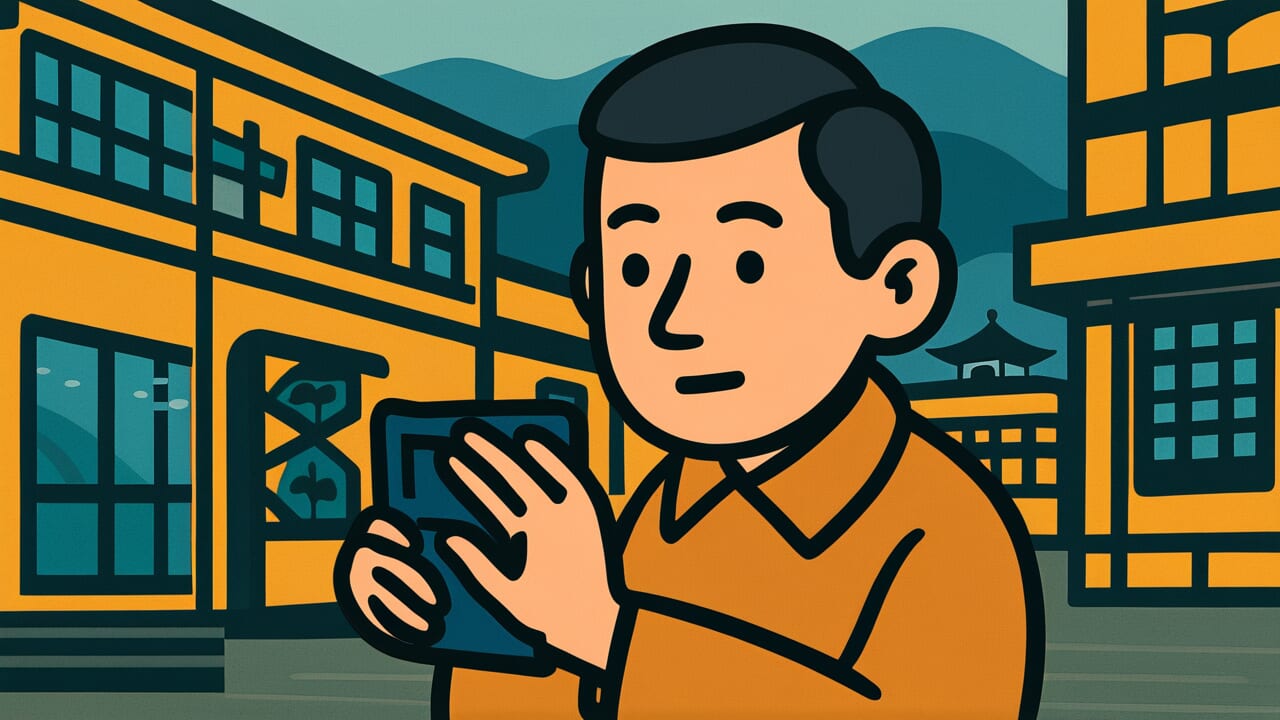How to Read “A Kyoto story that doesn’t resemble”
Ninu kyō monogatari
Meaning of “A Kyoto story that doesn’t resemble”
“A Kyoto story that doesn’t resemble” refers to talking about things you haven’t actually experienced as if you witnessed them firsthand. It warns against showing off knowledge that doesn’t match your real experience.
This proverb is used when someone talks about something they’ve never experienced as if they know it well. It criticizes people who speak about things based only on surface information without deep understanding.
Today, this applies when people act like experts using only internet information. Or when they talk in detail about places they’ve never visited.
The phrase shows the difference between knowledge and experience. It highlights the gap between what you’ve heard and what you’ve actually lived through.
Origin and Etymology
No clear written records explain the origin of this proverb. But we can understand it by looking at how the words work together.
“A Kyoto story that doesn’t resemble” combines two ideas. “Doesn’t resemble” means “unsuitable” or “out of place.” “Kyoto story” refers to tales about the ancient capital.
Kyoto was Japan’s capital for over a thousand years. It served as the center of culture and information. Talking about Kyoto showed education and sophistication.
The key word is “doesn’t resemble.” It means “unsuitable for that person.” The proverb describes someone who knows nothing about Kyoto talking as if they’ve been there.
Someone who never visited Kyoto and never experienced its culture shouldn’t speak like an expert. That behavior truly “doesn’t resemble” them.
During the Edo period, many people dreamed of visiting Kyoto but couldn’t afford the journey. Some talked about the capital based only on rumors.
This situation likely gave birth to the proverb. People who pretend to know more than they do exist in every era.
Usage Examples
- He’s never traveled abroad, yet he talks like he’s been around the world. It’s truly “A Kyoto story that doesn’t resemble”
- Acting like an expert with only internet research is “A Kyoto story that doesn’t resemble”
Universal Wisdom
“A Kyoto story that doesn’t resemble” reveals the deep connection between our need for approval and our vanity. Why do people talk about things they don’t really know?
Humans instinctively want to be recognized and valued. Knowledge and experience have always been measures of human worth. People who know much and experience much earn respect and social status.
This creates a temptation. We want to appear bigger than we are, even by pretending to have knowledge or experience we lack.
This proverb has survived because this human weakness is timeless. In ages when information was scarce and in our information-flooded present, the essence remains the same.
Today, getting information is easier than ever. This might make the temptation to pretend even stronger.
Our ancestors understood something important. True value comes not from borrowed knowledge but from personal experience and understanding.
This proverb quietly teaches us two things. Putting on airs is empty. Being honest has real worth.
When AI Hears This
When information passes from person to person, it degrades like electrical signals through phone lines. Shannon’s information theory proves with equations that noise accumulates each time signals travel through transmission channels.
Stories about Kyoto distort as they travel far. This follows the same principle.
Human memory and communication have interesting “compression algorithm” characteristics. We unconsciously summarize information and convert it into forms we understand better.
Kyoto’s complex culture and customs seem natural to locals. But people from other regions lack the framework to understand them.
The brain automatically replaces unfamiliar things with “known things” when storing memories. For example, “obubu-zuke dōdosu” is a polite way to ask guests to leave.
But in distant regions, people might understand it as just “an invitation for tea.” The semantic dimension of information gets stripped away.
Research on the telephone game shows something striking. After passing through five people, about 60 percent of original information changes.
Greater distance means more relay points. Each point adds its own noise. A story traveling from Kyoto to Edo along the Tōkaidō road passes through dozens of mouths.
Losing the original form becomes statistically inevitable.
Lessons for Today
This proverb teaches you the value of honesty. Have the courage to say “I don’t know” when you don’t know something. That’s not shameful. It’s actually the first step toward growth.
In the age of social media and the internet, we can easily get information. This makes the temptation to pretend we know more than we do even stronger.
But truly trustworthy people don’t line up borrowed knowledge. They speak honestly based on their own experience and understanding.
People who can honestly say “I don’t understand, please teach me” are loved by others. They gain real learning opportunities.
Pretending to know might make you look bigger temporarily. But eventually it causes you to lose trust.
Your value isn’t determined by how much you know. It’s determined by how honestly you live.
Treasure your own experiences. Admit honestly when you don’t know something.
This kind of humility creates true growth and trust.



Comments